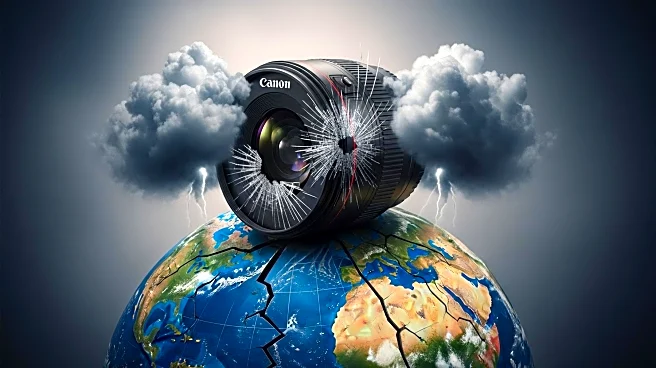What's Happening?
Israeli airstrikes on a newspaper complex in Yemen resulted in the deaths of 31 journalists and media workers, according to the Committee to Protect Journalists. The attack, targeting Houthi-connected media outlets, is considered the deadliest against journalists in the Middle East. The Israeli Defense Forces stated the strike aimed at the Houthi military public relations headquarters, but human rights advocates argue that media institutions should not be military targets. The incident raises concerns about press freedom and the safety of journalists in conflict zones.
Why It's Important?
The strike highlights the risks faced by journalists in conflict areas and the challenges of maintaining press freedom under military operations. The loss of media workers impacts the dissemination of information and the ability to report independently on regional conflicts. The incident may draw international condemnation and calls for accountability, influencing diplomatic relations and human rights policies. The situation underscores the need for protective measures for journalists and the importance of upholding international law in military actions.
Beyond the Headlines
The attack raises ethical questions about the targeting of media institutions and the balance between military objectives and civilian protection. It reflects broader issues of censorship and control in conflict zones, affecting the flow of information and public awareness. The incident may prompt discussions on the role of media in conflict resolution and the responsibilities of governments in safeguarding press freedom.









